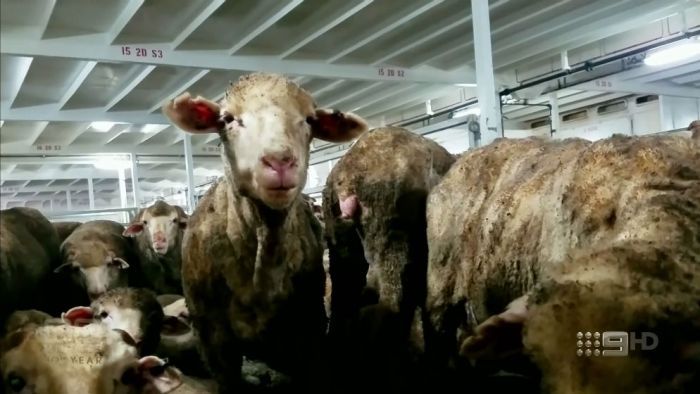
Live exports are on the nose with most Australian voters — especially women
Posted
Almost two-thirds of Australians surveyed by Vote Compass agree that live animal exports should be banned.
At this year’s election, the issue of live exports provides a distinct point of difference between the major parties.
Labor has promised to phase out the live export of sheep from Australia, if elected.
The Opposition announced its commitment following intense campaigning by Animals Australia, which in April 2018 broadcast shocking images of Australian sheep being shipped to the Middle East.
The Government responded with a review of regulations, and subsequently the industry imposed its own moratorium on live sheep exports during the hottest and most profitable months of the year.
Neither major party is campaigning on changes to the live cattle trade, which was suspended for six weeks in 2011.
The Vote Compass survey is based on a nationally representative sample of 119,516 respondents.
This year’s survey results found an increasing number of Australian voters want the trade of live animals stopped — 58 per cent either somewhat or strongly agreed.
Back in 2013, 45 per cent of Vote Compass respondents either somewhat or strongly agreed with a ban.
Vote Compass showed women were more adamant than men in their support for a ban this year — almost twice as many women strongly agreed the trade should be stopped.
Seventy per cent of women either somewhat or strongly agreed that the trade should be stopped, compared to 47 per cent of men.
When it came to age, it was the 55-and-overs who most wanted to see an end to live exports.
Voter intentions by party were less clear, with no trend among One Nation voters, who were almost evenly split in support for and against live exports.
Coalition voters were also divided, leaning slightly in favour of live exports continuing, while Greens and Labor voters were most in favour of a ban.
Perhaps not surprisingly, voters in the Northern Territory and Western Australia (from where most cattle and sheep are live exported) were most inclined to disagree with a ban.
Rural voters more so than regional or metro respondents were opposed to the ban.
Coal seam gas
The 2016 Vote Compass results showed an increasing number of Australians were concerned about the coal seam gas industry.
That survey showed 67 per cent (up from 55 per cent in 2013) disagreed fewer restrictions should be placed on exploration.
In this year’s Vote Compass, the result was almost identical: 66 per cent of voters said more regulation was needed around coal seam gas exploration.
Those who identified as Greens and Labor voters were most inclined to call for stricter regulations.
Topics:
